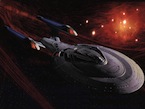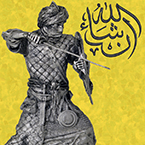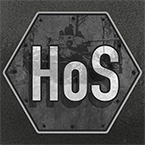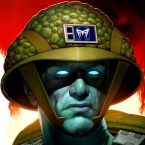maitrebongo
Posts: 298
Joined: 3/18/2014
Status: offline

|
How I fell in love with Operation Citadel
During the last few months and while we were confined, I had a lot of time to get out a good part of the wargames that were sleeping in my archives and play them again. It was the occasion for me to ask myself the fundamental question of "What makes a computer wargame good enough to make you still want to play it, even several years after you acquired it?"
As a result, I wondered which wargame I would have liked to take to a desert island if I had to take only one.
The answer, as surprising as it is, is a "little game" discovered almost by chance during my peregrinations in the world of wargame and which many people are starting to talk about: Operation Citadel.
To try to understand how this game, so confidential until now, is the one that wins my vote when so many of its illustrious competitors could have claimed this title of computer wargame that you absolutely must own, you have to define (according to my personal opinion) what a good wargame is.
A good wargame is in 2D
The arrival of 3D in the world of wargame has been a disaster in many cases. It is better to have a good 2D than a cheap 3D. Moreover when you like to find the feeling of wargames board games in front of your screen, it is not a necessity. So I will only talk about board wargames in this subject and will leave aside the Combat Mission and other Steel Division.
A good wargame is turn by turn
Real-time gaming can have its good points (as in Command Mordern Operation) but I think it is detrimental to the desired gaming experience. It's one of the things that bothers me the most in the Close Combat series, which I love by the way, not enough time for reflection, the feeling of being stressed.
A good wargame is simple
Simple does not mean simplistic. Personally, when I want to play a game, I don't want to have to memorize pages and pages of rules or have to micromanage the smallest details. Some people like it... but not me. The mechanics of the game are simple to learn but are a pleasant challenge to master.
A good wargame is beautiful
It's obvious to me, a computer game has to be beautiful, nice to look at. A bit like when I was younger I used to spend hours looking at the illustrations of wargame boxes in the shelves of specialized stores or even today I still open one of these boxes just to look at the cards and counters inside.
Most of today's computer wargames have graphics that don't live up to what you would expect from a 21st century video game, it's a fact. Only a few of them are doing well, like Lock'n'Load Tactical of course and Wars Across The World for example.
Operation Citadel is very nice from a graphical point of view (especially since the last version 3.0) and allows to play in resolutions up to 4K.

A good wargame must have a good AI
No game today has a really smart AI. What is asked of it is to be convincing, to give the impression of playing against another human being and to offer a balanced challenge. Some games fare better than others, and Operation Citadel's AI has convinced me on those specific points.
A good wargame must offer editors
So there, we must admit that what was a standard a few years ago is completely disappearing. Fewer and fewer editors of scenarios, campaigns, maps or units in the games coming out lately; and this willingness on the part of the editors to split the campaigns in the form of DLCs and to sell them to us is surely not unrelated to this.
Operation Citadel comes with every imaginable editors (scenarios, campaigns, maps, units, nations, and even a landscape tile editor), and it's the only recent game I know of to offer so many.
Moreover, its designer has committed never to sell DLCs but to add them to the main game for free. Such a good spirit is really rare nowadays.
A good wargame can be modded
The strength of the wargamer community is their creativity and attention to detail. The history of computer wargame has always been accompanied by a large amount of enhancements and complementary contents created by modders that have helped to sublimate games such as Steel Panthers for example.
And that's where the real gem of Operation Citadel lies. This game is in fact a real toolbox that can be used to create all kinds of wargames based on its system (other conflicts, other eras, all fantasies are possible) or even retro-gaming board wargames (a bit like Tabletop Simulator, but with an AI). The system is completely open and its creator is willing and enthusiastic for all the players' projects. An incredible good spirit (I've already said it).
It's possible to mod all the graphics (and even add hand-drawn maps on top of the original one), to customize all the values that characterize the units, to create as many as you want... So many possibilities...

That's why I really fell in love with this game.
It might well be the game system that many of us wanted. All it would take is for the community to get a hold of it and start playing with its editors and producing contents so that one day it would become a standard like The Operational Art of War in its day, but simpler and more pretty... In my opinion.
< Message edited by maitrebongo -- 3/5/2021 9:56:01 PM >
_____________________________
"Impossible is not French" Napoleon Bonaparte
|
 Printable Version
Printable Version
















 New Messages
New Messages No New Messages
No New Messages Hot Topic w/ New Messages
Hot Topic w/ New Messages Hot Topic w/o New Messages
Hot Topic w/o New Messages Locked w/ New Messages
Locked w/ New Messages Locked w/o New Messages
Locked w/o New Messages Post New Thread
Post New Thread